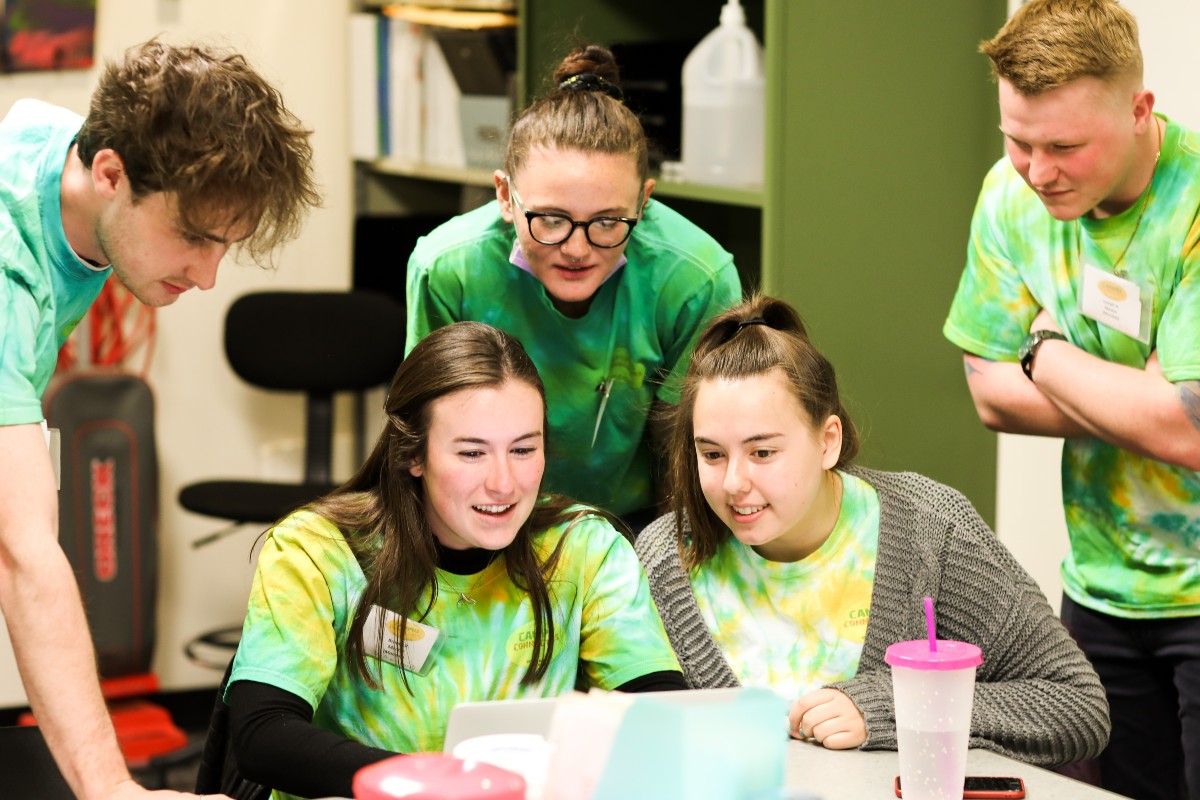
Since 2009, Colorado State University’s Campus Connections youth mentoring program in the Department of Human Development and Family Studies has built positive relationships and a supportive community among local youth and undergraduate students. A grateful alumna has created a new endowment to provide perpetual support for the nationally recognized, award-winning program that shaped her CSU experience and continues to influence her career and connections to her alma mater.
Campus Connections has also grown in scope and impact by offering undergraduate certificates in youth mentoring, licensing its evidenced-based approach to four other universities, and adapting its environment to support participants.
Effective approach to mentorship
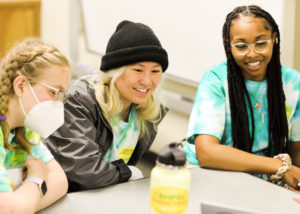
Campus connections provides mentoring to youth exposed to adversities in a unique structure that pairs them with undergraduate student mentors. The youth participants are referred from the juvenile system, schools, human services, and others. The mentor-mentee pairs are grouped with other pairs in mentor families, which are supported by experienced mentor coaches and graduate students in marriage and family therapy. The mentor families meet weekly during spring and fall semesters – while the undergraduate students are enrolled in a 3-credit service-learning course in human development and family studies.
The structured programs include exploration of the CSU campus, academic support, a community dinner provided by Food Bank for Larimer County, pro-social activities like games, crafts, and sports, and integrated mental health services. Program evaluations and research data reveal impressive outcomes for both university students and youth, including increased skill-building, sense of belonging, school attendance and success, and decreased delinquency and problem behavior among youth.
Scaffolding support
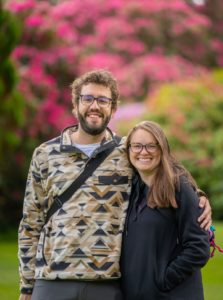
Like the layered support of Campus Connections mentors, coaches, and clinicians, Caley Follmer (’15) and her husband Taylor Scott (’12) are scaffolding their philanthropy with matching gifts from Follmer’s employer, Lockheed Martin, to endow a fund that will provide an annual source of revenue for Campus Connections.
Follmer earned her bachelor’s degree in mechanical engineering but credits her four years of involvement in Campus Connections with fostering her leadership skills. “By participating in the program, I developed critical soft skills that I would not have gotten from my degree program.” Her career in an engineering environment has a human-focused trajectory: her current role is in people analytics.
Perpetual adaptability
“It has been our dream for years to have an endowed fund that can provide a reliable income stream for Campus Connections,” said Toni Zimmerman, Ph.D., LMFT, Professor and Director of the Marriage and Family Program. “We are so grateful to Caley and Taylor for their gifts to CC since graduation, and as leaders in our fundraising efforts.”
“The Developing Ramily Campus Connections Endowment pairs Caley and Taylor’s personal giving with the Lockheed Martin matching gift program, which matches employee charitable gifts to higher education up to $10,000 each year,” said Kelsey Burket, director of development, who worked with Follmer, Scott, and the Campus Connections team to create the endowment with the CSU Foundation. “These gifts are invested for Campus Connections in perpetuity, and the fund is open to receive gifts from other donors to support the program.”
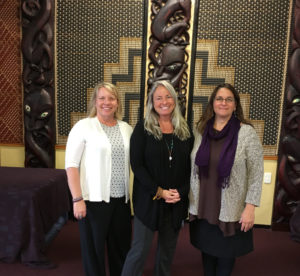
The Developing Ramily Campus Connections Endowment fund will “promote the resilience and life success of youth who have experienced adversity, prepare skilled and engaged undergraduate and graduate students, and respond to community initiatives that better support youth and families.” The program leaders – including Co-Directors Zimmerman, Jen Krafchick, Ph.D., CFLE, and Shelley Haddock, Ph.D. LMFT– will have the discretion to use the fund for programmatic expenses, including research endeavors, evaluations, training, supplies, and technology.
Program champion through highs and lows
When Campus Connections celebrated its first decade in 2019, the program launched a fundraising campaign on RamFunder, CSU’s crowdfunding platform. Follmer and Scott led the charge by committing a personal challenge paired with a Lockheed Martin matching gift, and further supported the campaign through their social channels.
“As we learned more about the fundraising goals for Campus Connections, we started dreaming with the team about creating something that would last longer than our annual gifts,” Follmer said. “I’m so grateful to be able to give back to a program that has given so much to me. Ensuring that future students and youth will get to participate in Campus Connections for years to come is a dream come true.”
“We are incredibly grateful not just for the gifts that have made this endowment possible,” said Krafchick, “but also for the flexibility built into the fund that allows us to adapt the program to meet the changing needs in the community.”
Campus Connections shifted its operations to a virtual environment during the COVID-19 pandemic. Follmer reprised her role of lead mentor coach in Fall 2020, supporting mentorship families and other mentor coaches remotely while working for Lockheed.
Community impact
In 2022, Campus Connections brought together 140 community youth with 190 undergraduate students as mentors, mentor coaches, and research assistants, and 25 clinical graduate students in the Marriage and Family Therapy Program. One of the unique aspects of the program is the way it attracts students from all majors at CSU – including engineering students like Follmer was. “Campus Connections builds community and empathy, with a significant focus on diversity, equity, inclusion, and social justice,” said Haddock. “I learned about the impact of privilege and bias and how to respond to those forces,” Follmer recalled.
Since its inception in 2009, Campus Connections has engaged more than 2,300 youth participants and more than 3,000 CSU students and researched the impact and process of mentoring interventions on the socioemotional, academic, and behavioral outcomes of youth and college students. Four other universities have licensed the model and are replicating it: University of Northern Colorado in Greeley; University of Colorado, Colorado Springs; Colorado State University – Pueblo; and University of Auckland in New Zealand.
Although Scott did not participate in Campus Connections as a student, he has engaged with Follmer both through their philanthropy and with a visit. “I recently had the opportunity to experience Campus Connections first-hand and was amazed by the important interactions that were taking place and the obvious positive impacts the program had on the mentors and youth alike,” he said. “The experience connected me even more to the program, its mission, of course, and to our new endowment fund.”
Undergraduate certificates
In the two years since Department of Human Development and Family Studies began offering undergraduate certificates in Youth Mentoring with Campus Connections, 22 students have earned them, and 13 more are currently enrolled. The nine-credit certificate equips students with knowledge and leadership experience to launch rewarding careers or pursue graduate degrees.
Over multiple semesters, students develop professional skills, gain significant experience with adolescents, and evolve as leaders while serving as mentors to community youth, coaching other mentors, or through internships, field placement, or program administration roles. The certificate prepares students for careers working with youth in education, social services, criminal justice, healthcare, and other relevant professions. As Follmer has discovered, the leadership and interpersonal relationship skills students gain can be applied to industries beyond human services. Formalizing the skills in a certificate adds legitimacy to a student’s resume while building confidence and practical experience.
A healing environment
When the program returned to campus in Fall 2021, Campus Connections expanded to include clinical space in the Gifford Building. In this setting, youth participants and their families meet with graduate students building skills as counselors.
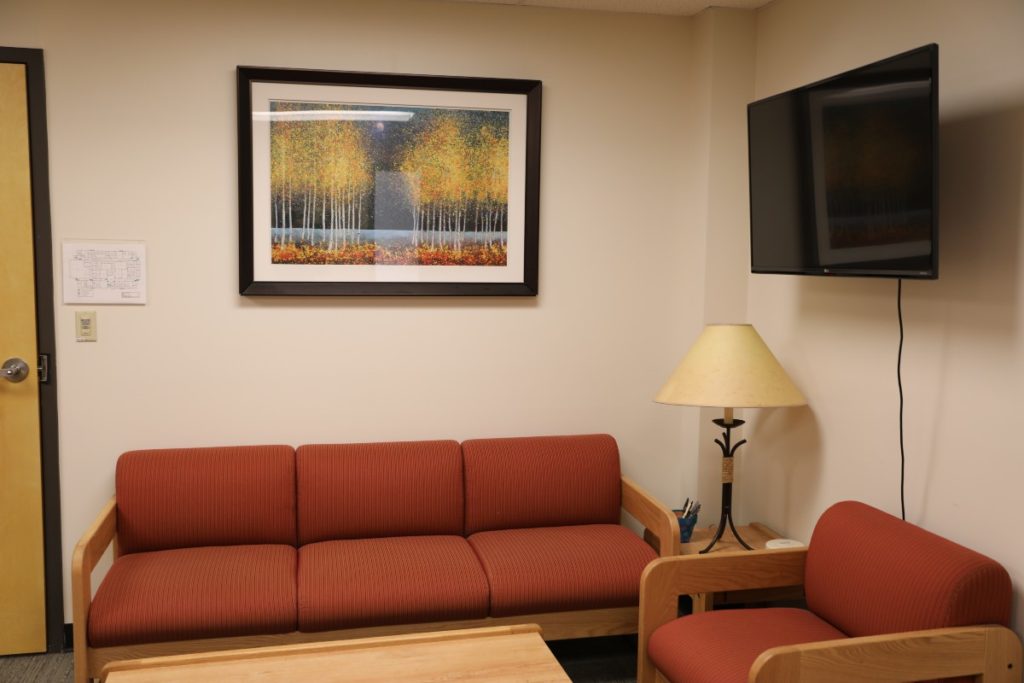
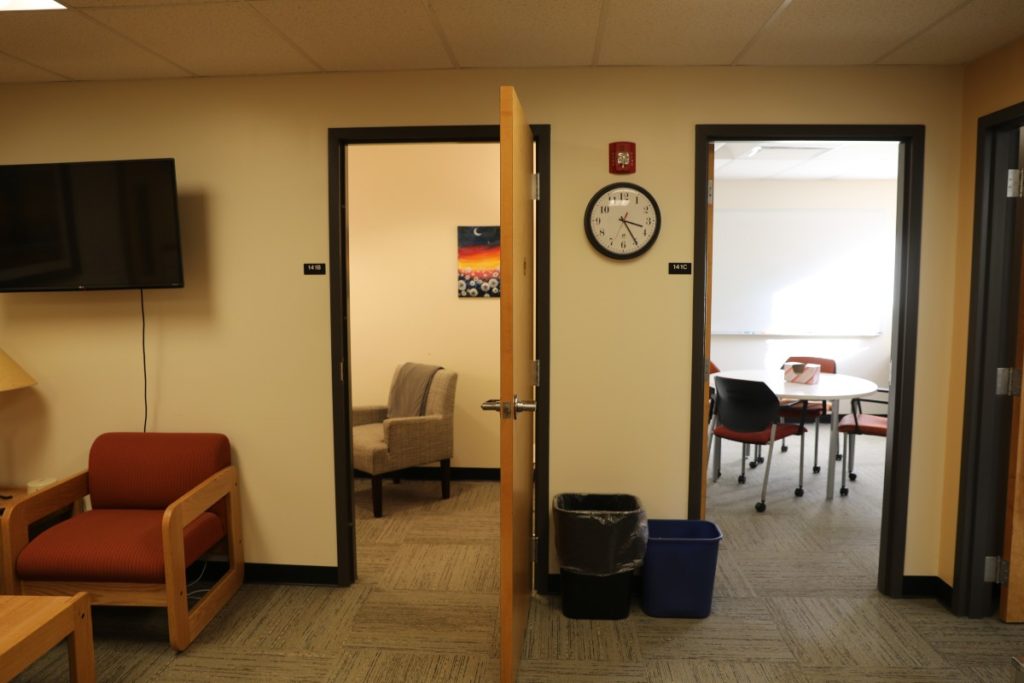
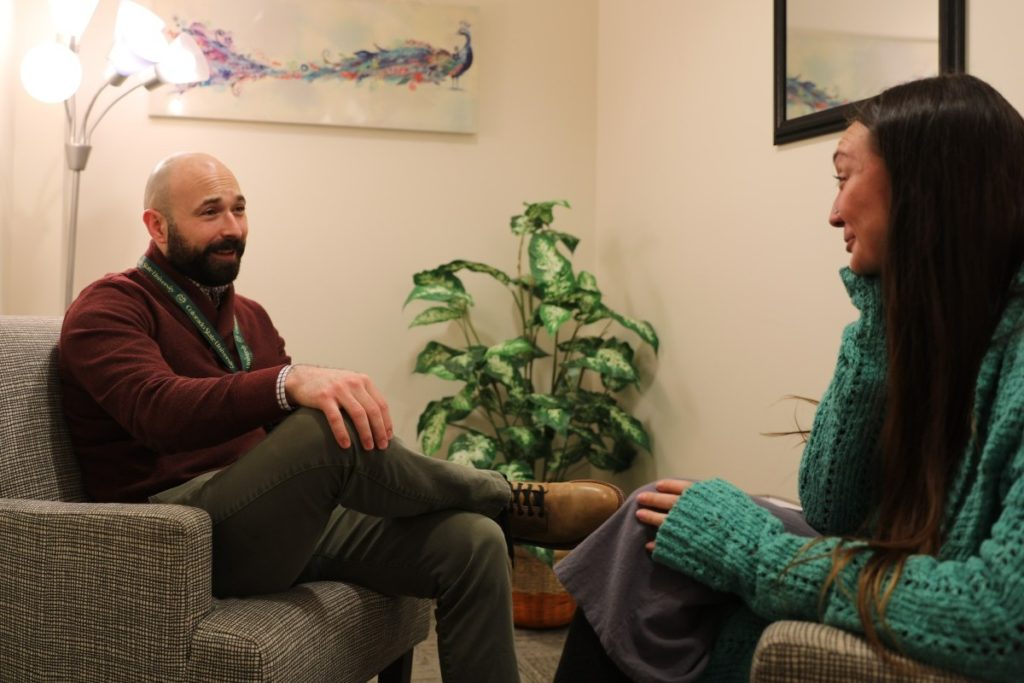
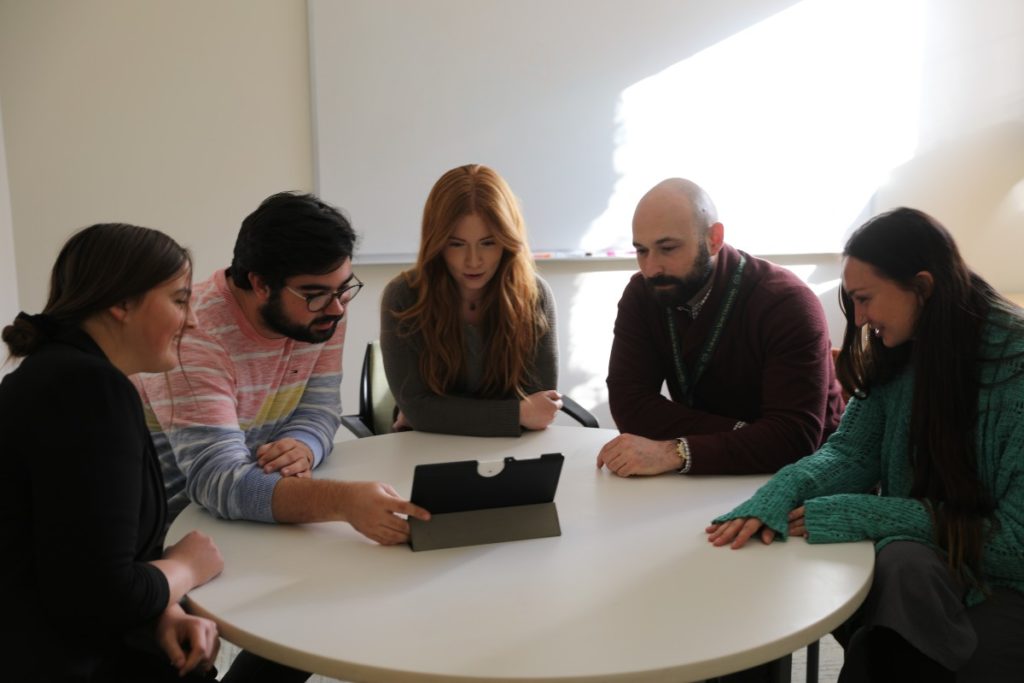
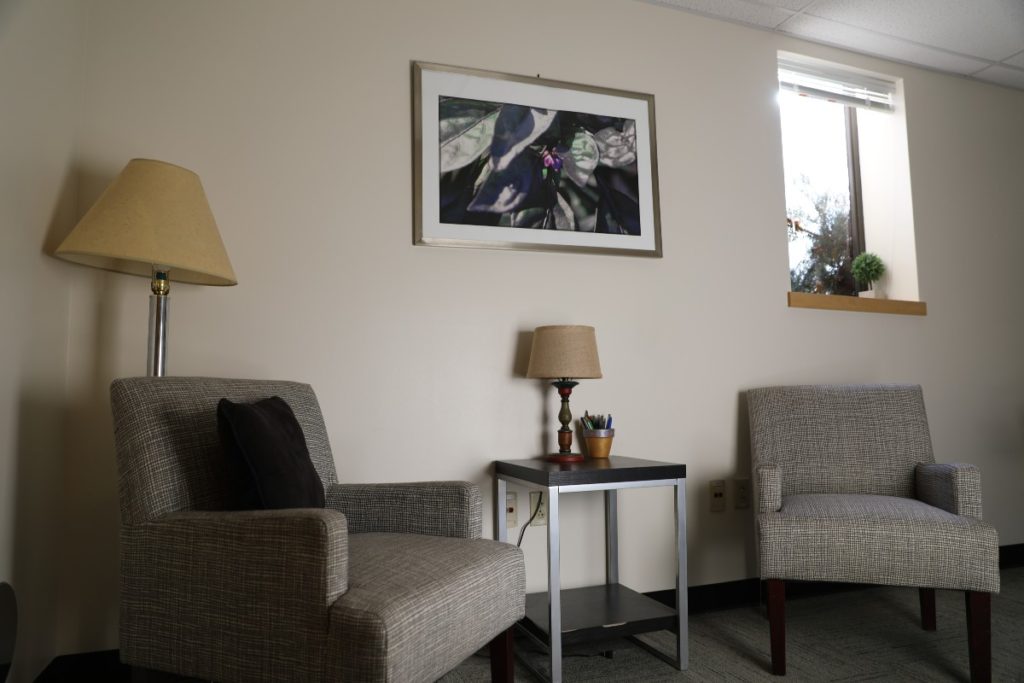
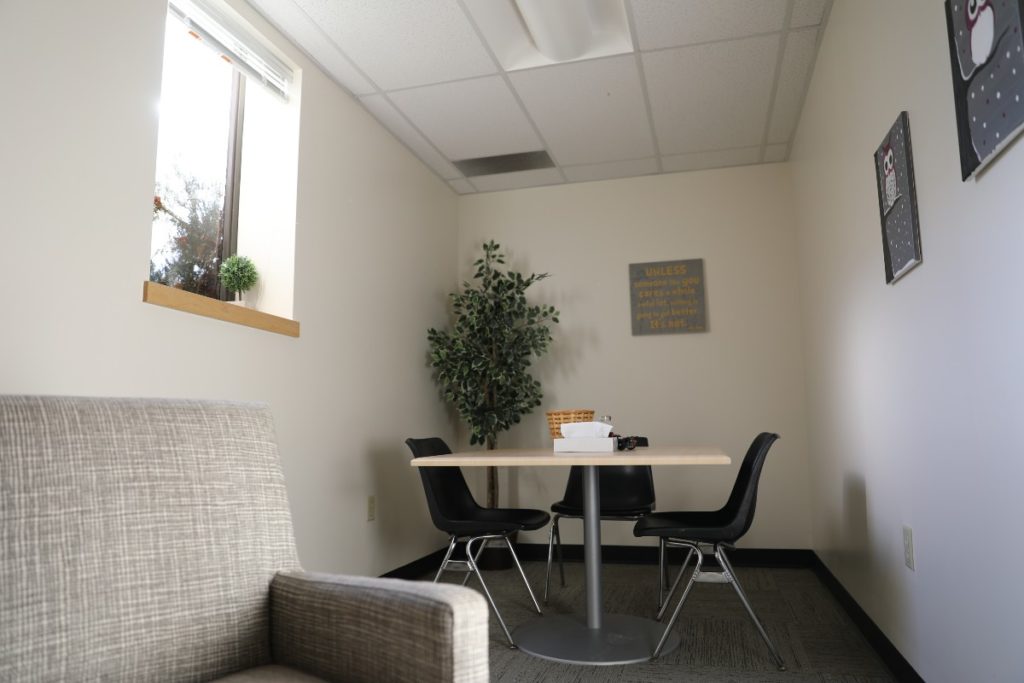
Quotes from caregivers attest to the effectiveness of the program:
- “My kids have been going through a really hard time and Campus Connections is a place they can feel safe and loved.”
- “As a grandma raising my grandson, I don’t know what I would do without Campus Connections to help me.”
- “My son and I are getting along so much better since Campus Connections.”
- “Campus Connections has turned my daughters’ life around. We will be back next semester and the semester after that.”
Thinking into the future, the Campus Connections program team envisions further enhancements to the physical space to support emotional needs. “A goal for next year is to create a sensory room for youth who are struggling with [emotional and behavioral] regulation,” said Zimmerman. With the Developing Ramily Campus Connections Endowment and growing support for the program, the team is optimistic about future growth and adaptation. Learn more about Campus Connections or make a gift online.
Campus Connections is in the Department of Human Development and Family Studies, part of CSU’s College of Health and Human Sciences.